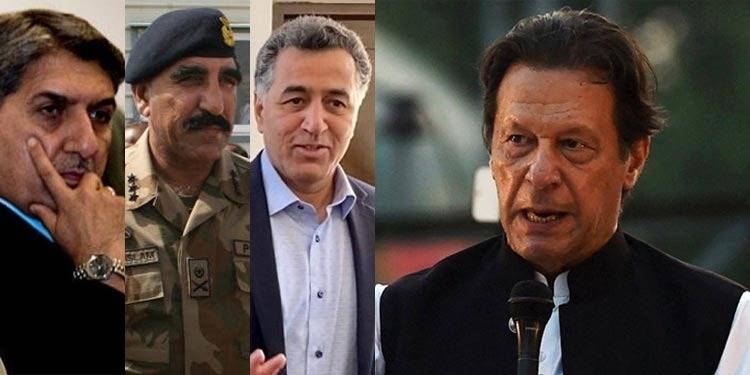
A conversation in 2015 with a general was still in my vivid memory when we argued about the recklessly enthusiastic launch of "Project Imran" as I opposed the idea and refused to show my support to PTI. I warned the good general that I could foresee some disastrous outcomes of this project within a decade and that it would be published in the US military's "Catalogue of Catastrophe." That's why a military has to remain apolitical. I argued that despite the success of the 'Thank You, Raheel Sharif" narrative, this project was risky because of no risk assessment on the probabilities of failure; or the measurements about the causal relationships of "what if" scenarios.
I would then share my articles with him and others on the terrible precedents of populist politics, which, in my opinion, Pakistan could not afford as a security state. Of course, some of the generals would disagree, as they were blindly hopeful and fans of the charismatic leadership of Imran that he would make Pakistan a corruption-free country. However, what happened later is history and will definitely be published in the "catalogue of catastrophes" in the coming years. That is why Finer, Huntington, and many others will stand tall over the civilian control of military theories. My series of columns from 2014-2021 is also part of the history of repeated warnings which of course the powerful people don't give much attention.
I want to correct some facts as per my knowledge since I read many articles and saw some vlogs on the latest military leadership.
It is rightly stated that Zardari wanted General Aamir as Joint Chief to send Gen. Faiz home. President Zardari had his political reasoning that the presence of General Faiz would continue the political tensions. Therefore, a relatively junior officer, such as General Aamir, must be elevated as JCSC to supersede him. There was consensus on this advice until the very early evening when the military establishment decided to give a respectful exit to their controversial general instead of superseding him.
One of the key goals of the Pakistani military structure is to save the institution from any external infiltration; and whatever internal accountability and liability concerns are within the institution, they ought to remain within. The Pakistani military has never allowed and never wished to be prosecuted by the judiciary or civilians, which is a set precedent from Yahya to Musharraf. Therefore, a silent agreement was reached in the last hours to appoint General Asim Munir as COAS (already settled) and appoint General Sahir Shamshad as JCSC. Once these appointments were notified, then General Faiz was going to announce his retirement. I was astonished yesterday when General Azhar announced his retirement but not General Faiz because he was also supposed to announce his retirement.
Therefore, I tweeted that General Azhar has announced his retirement; however, General Faiz will continue his services as corps commander, Bahawalpur.
https://twitter.com/ShamaJunejo/status/1596087995723288576?s=20&t=k7KfQv3f_oGDVKsxpjuJDA
Apparently, there was disturbance and whispers. However, today General Faiz, reportedly, has announced his retirement, which shows that the current leaders are men of their word. We should appreciate that the mistakes have been admitted for the first time in Pakistan's history. General Bajwa did not directly admit the catastrophic outcome of the hybrid project; however, he felt the institutional pressure to make an indirect public admission. The civilians should support it. They must not forget that the fundamental policy of the armed forces is to save the institution from political partisanship and the public 'image' which Imran Khan successfully ruined by completely thrashing the Army leadership by calling them names and through an unprecedented malicious campaign from his party and leaders like Azam Swati. Gen Bajwa, in effect, admitted the mistake of his own 'doctrine'; and vowed that the military would not repeat any such adventure. However, that would not end the latent control of the military on national security issues. Their power needs to remain within the constitutional framework to demonstrate the apolitical professionalism of the institution.
I must quote Kohn that civilian control is a process rather than a fact, and Pakistan has a long path to complete that process. The demise of Project Imran needs a proper funeral where the remains need to be burnt instead of buried.
In my assessment, since the military establishment has taken full responsibility for the catalogue of the catastrophe, they have to send another General home, who was also an active character since Dawn Leaks Scandal. If they are committed to cleansing the institution of politicization, they must demonstrate it in good faith by obeying the constitution.

